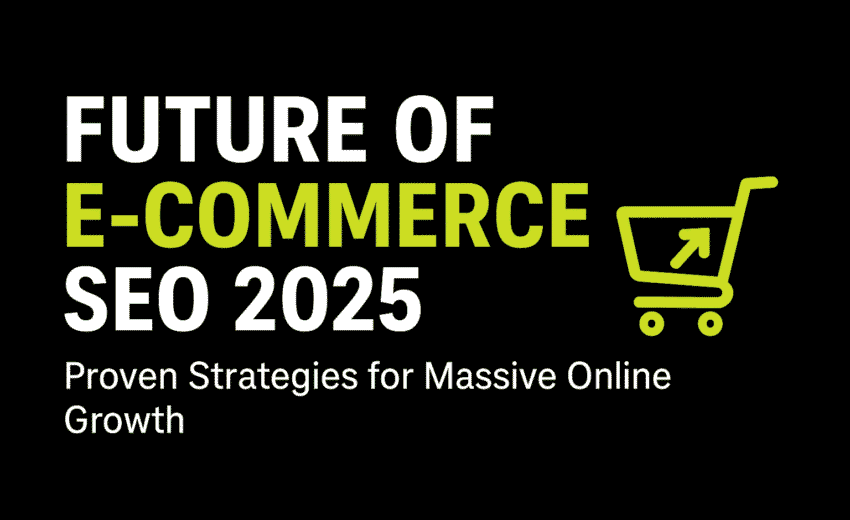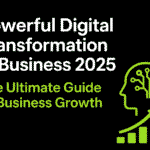
Discover the Future of E-commerce SEO 2025 with proven strategies like AI, voice search, structured data, and Core Web Vitals to grow your online store faster.
Introduction
The world of online shopping has evolved dramatically, and in 2025, competition is fiercer than ever. With millions of e-commerce stores vying for the same customers, the key to success lies in visibility. That’s where the Future of E-commerce SEO 2025 comes into play.
By understanding the latest trends, tools, and customer expectations, businesses can position themselves ahead of the curve and ensure steady growth in the years to come.
Why the Future of E-commerce SEO Matters
SEO has always been essential, but in 2025 it’s no longer just about ranking keywords. It’s about user experience, personalization, and relevance.
According to Statista, over 43% of online store traffic still comes from organic search. That means without a solid SEO foundation, e-commerce websites risk losing nearly half their potential customers.
Investing in the Future of E-commerce SEO 2025 ensures that:
- Customers can find your store easily
- Your website delivers a better experience
- Search engines reward you with higher rankings
Key SEO Trends Defining 2025
1. Voice Search Optimization
Voice search is rapidly changing how people shop. Instead of typing, customers now ask conversational queries like “best gaming laptops under $1000 in 2025” or “eco-friendly sneakers near me.”
To prepare for the Future of E-commerce SEO 2025:
- Use natural, conversational keywords
- Add FAQ sections with Q&A schema
- Optimize product descriptions for long-tail voice queries
2. Mobile-First Indexing & Speed
Google’s focus remains on mobile-first indexing, and page speed is a ranking factor. Customers expect fast-loading, mobile-friendly shopping experiences.
Optimization tips:
- Use responsive design across all devices
- Optimize Core Web Vitals for speed and interactivity
- Compress images without losing quality
3. AI and Personalization in SEO
AI-driven personalization is revolutionizing online shopping. E-commerce sites that recommend products based on browsing history or location keep customers engaged longer, improving SEO signals.
The Future of E-commerce SEO 2025 will be dominated by:
- AI-powered product recommendations
- Chatbots for real-time assistance
- Predictive search for faster navigation
4. Structured Data & Rich Snippets
Rich snippets provide customers with instant insights like pricing, ratings, and stock availability directly in search results.
Implementing schema markup for product pages increases CTR and gives stores a competitive edge.
5. Content Marketing for E-commerce
In 2025, SEO goes beyond product listings. Content is crucial for attracting and converting customers. High-quality blogs, how-to guides, and buyer’s guides help brands rank for long-tail keywords.
For example:
- “Top 10 Fashion Trends 2025”
- “How to Choose the Best Smartphone for Gaming in 2025”
By linking these blogs to product pages, businesses strengthen their Future of E-commerce SEO 2025.
Emerging Trends in E-commerce SEO
- Visual Search Growth: Customers upload images to find products online.
- Eco-Friendly Search Terms: Sustainability is shaping SEO with keywords like “eco-friendly,” “recycled,” and “green.”
- Local E-commerce SEO: Hybrid online + offline stores benefit from geo-targeted SEO strategies.
Common SEO Mistakes to Avoid
To succeed in the Future of E-commerce SEO 2025, businesses must avoid mistakes such as:
- Duplicate product descriptions
- Ignoring product image alt text
- Weak internal linking structures
- Over-optimizing keywords
Internal & External Links
- Internal Link: Read our guide on SEO Strategies 2025.
- Internal Link: Check out our insights on Content Marketing Strategies 2025.
- External Link: Stay updated with Search Engine Journal for industry trends.
Conclusion
The Future of E-commerce SEO 2025 is about more than rankings — it’s about creating seamless, personalized, and trustworthy online shopping experiences.
By embracing AI, optimizing for voice and mobile, leveraging structured data, and producing high-quality content, e-commerce businesses can secure long-term growth.
Those who adapt early will lead the next generation of digital commerce.







